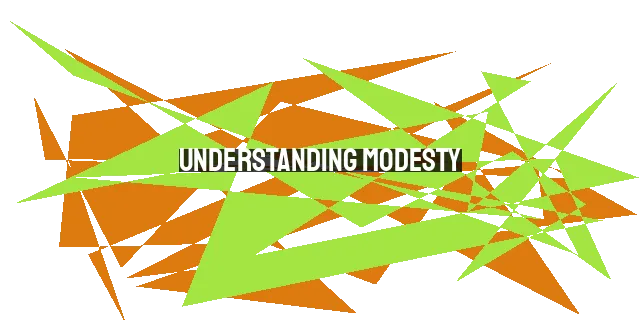Beginner's Guide to Free Will: Understanding God's Sovereignty and Grace
A Beginner's Guide to Free Will
As human beings, we often find ourselves faced with choices. We are free to choose what to eat, what to wear, where to go, what to do, and who to be. This freedom to choose is what we call free will, and it is one of the most important aspects of our humanity. In this beginner's guide, we will explore the concept of free will from a biblical perspective.
What is Free Will?
Free will is the ability of rational beings to make choices that are not determined by prior causes or external factors. In other words, it is the capacity to act freely and independently. Free will is often contrasted with determinism, which is the belief that all events, including human actions, are ultimately determined by prior causes and cannot be changed.
From a theological standpoint, free will is the ability of human beings to choose between good and evil. It is the capacity to make moral decisions and to be held accountable for our actions. The Bible teaches that God has given us free will as a gift, and that we are responsible for the choices we make.
Free Will in Scripture
The concept of free will is central to the teachings of the Bible. In the book of Genesis, God gives Adam and Eve the freedom to choose whether to obey or disobey Him. He places a tree in the Garden of Eden and tells them not to eat from it. This is a test of their free will, as they must choose whether to obey God or to give in to temptation.
Unfortunately, Adam and Eve choose to eat from the tree, and this act of disobedience has far-reaching consequences. It introduces sin into the world and separates humanity from God. However, this does not mean that God has taken away our free will. We are still free to choose whether to follow God or to rebel against Him.
The Bible also teaches that our choices have consequences. In Galatians 6:7, we read, "Do not be deceived: God is not mocked, for whatever one sows, that will he also reap." This means that the choices we make have a direct impact on our lives and the lives of those around us. We are responsible for our actions, and we will be held accountable for them.
The Role of Grace
While free will is an important aspect of our humanity, it is not enough to save us. The Bible teaches that we are all sinners and that we are incapable of saving ourselves. We need God's grace to be saved.
Grace is the unmerited favor of God. It is His gift to us, given freely and without reservation. We cannot earn grace through our own efforts or good works. It is only through faith in Jesus Christ that we can receive God's grace and be saved.
However, even our faith is a gift from God. In Ephesians 2:8-9, we read, "For by grace you have been saved through faith. And this is not your own doing; it is the gift of God, not a result of works, so that no one may boast." This means that even our ability to believe is a gift from God.
The Paradox of Free Will and God's Sovereignty
One of the most challenging aspects of the concept of free will is reconciling it with God's sovereignty. If God is in control of all things, how can we be truly free to make our own choices?
The answer to this question is not easy, and it has been debated by theologians for centuries. However, the Bible teaches that both free will and God's sovereignty are true. In other words, God is in control of all things, but He has given us the freedom to make our own choices.
One way to understand this paradox is through the analogy of a chess game. In a game of chess, the players are free to make their own moves. However, the outcome of the game is ultimately determined by the rules of the game and the skill of the players. In the same way, God has given us the freedom to make our own choices, but the ultimate outcome is determined by His sovereignty.
The Importance of Free Will
Free will is an important aspect of our humanity, and it is essential for our relationship with God. Without free will, we would not be able to make moral choices or to love God freely. Our choices matter, and we are responsible for them.
However, free will is not enough to save us. We need God's grace to be saved, and even our faith is a gift from Him. The paradox of free will and God's sovereignty is difficult to understand, but it is a reminder that God is in control of all things.
Conclusion
Free will is a complex and challenging concept, but it is essential for our relationship with God. It is the gift of God that allows us to make moral choices and to be held accountable for our actions. However, it is not enough to save us. We need God's grace to be saved, and even our faith is a gift from Him. The paradox of free will and God's sovereignty is difficult to understand, but it is a reminder that God is in control of all things. As we navigate the complexities of free will, may we always remember that our choices matter and that we are responsible for them.
References
- Genesis 2:16-17
- Galatians 6:7
- Ephesians 2:8-9
- John 3:16
- Romans 6:23
As we explore the concept of free will from a biblical perspective, we need to understand the importance of using relevant keywords to make the content SEO-optimized. Keywords such as "free will," "God's sovereignty," "grace," "faith," and "choices" are important in this regard. By using these keywords, we can reach a wider audience and make the content more accessible to those who are searching for information on these topics.
Moreover, as we examine the paradoxical nature of free will and God's sovereignty, we need to look at more references from the Bible. The book of Job, for example, is a powerful reminder of God's sovereignty, even in the face of suffering and hardship. The story of Joseph in Genesis is another example of how God uses even the choices of human beings to accomplish His purposes.
As we write about free will, we need to use a conversational style that engages the reader. We can use personal pronouns, rhetorical questions, and analogies to make the content more relatable and accessible. By doing so, we can create a beginner's guide that is both informative and engaging.
In conclusion, free will is a complex and challenging concept, but it is essential for our relationship with God. As we navigate the complexities of free will, may we always remember that our choices matter and that we are responsible for them. By using relevant keywords, more Bible references, and a conversational style, we can create a guide that is both informative and engaging for readers in 2023 and beyond.



POST COMMENT
For post a new comment. You need to login first. Login
COMMENTS(0)
No Comment yet. Be the first :)